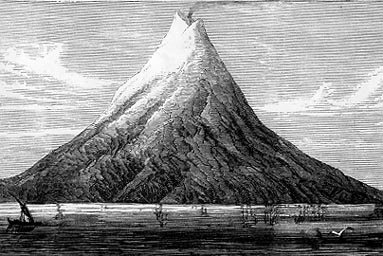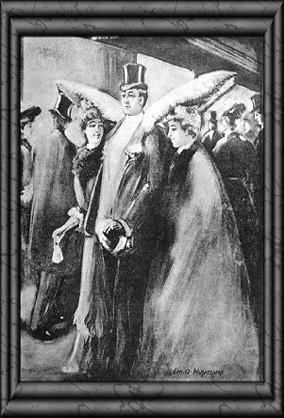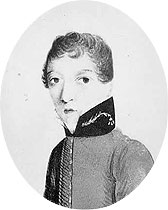
In 1883, the assistant telegraph editor of the Boston Globe invented the story of a volcanic eruption in the South Pacific, purportedly related by the captain of a freight steamer. Editorial writer Florence Finch Kelly later recalled:
The tale he told was truly one of horrific happenings — what looked like a whole island blown into the sky, showers of ashes that darkened the sunlight and covered his decks inches deep, great blocks of ice in the midst of red-hot streams of lava, the ocean bubbling with heat from these torrents of fire, tons of fish killed by the heated ocean water and floating dead on its surface, and many another marvel fit to make even a tough old sea captain’s eyes pop from his head.
The story filled several columns on the Globe‘s front page, and it was picked up in New York, London, and Chicago. Only later did reports arrive of a catastrophe in Indonesia: “With his imaginary volcanic eruption, Mr. Soames had closely hit in time and place the explosion of Krakatoa, the greatest volcanic eruption of modern times, and in his account he had included many phenomena that were paralleled in later descriptions of the actual outburst! Did the vagaries of chance ever direct the long arm of coincidence to a more amazing result?”
(UPDATE: In Media Hoaxes [1989], Fred Fedler reports that the editor’s story was based on early cables from London regarding the volcano’s eruption. He embellished the cables’ scant information with surmised details based on library research, and these proved to be surprisingly accurate. So the truth is much less impressive than Kelly’s account — or than that published by Frank Edwards in two books in the 1950s.)



